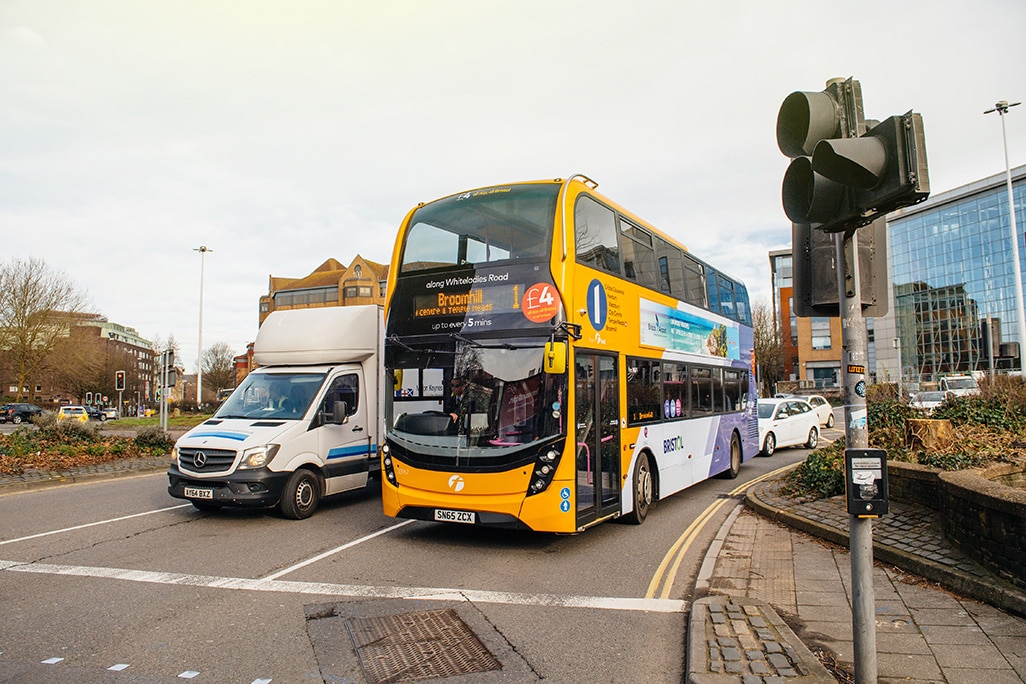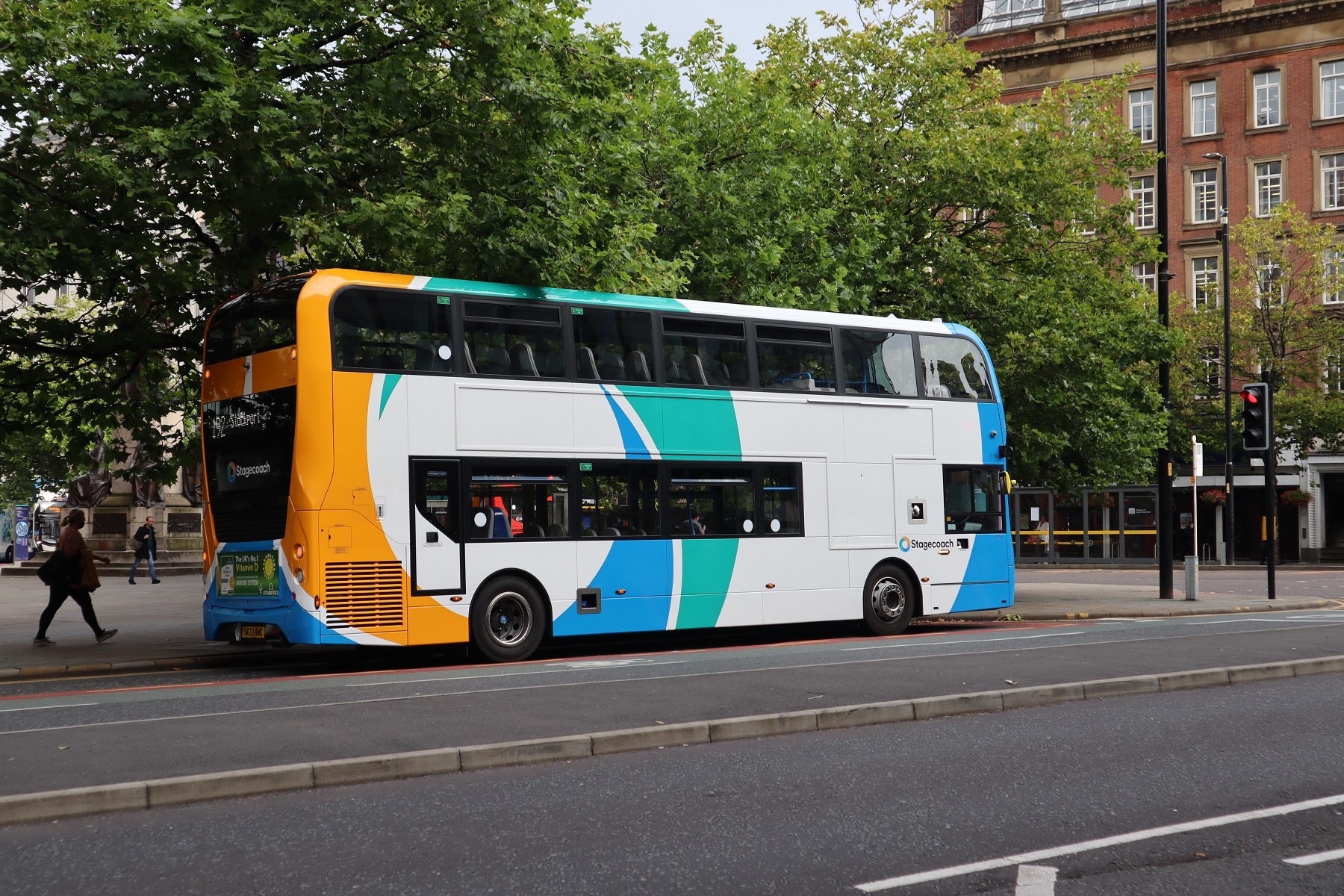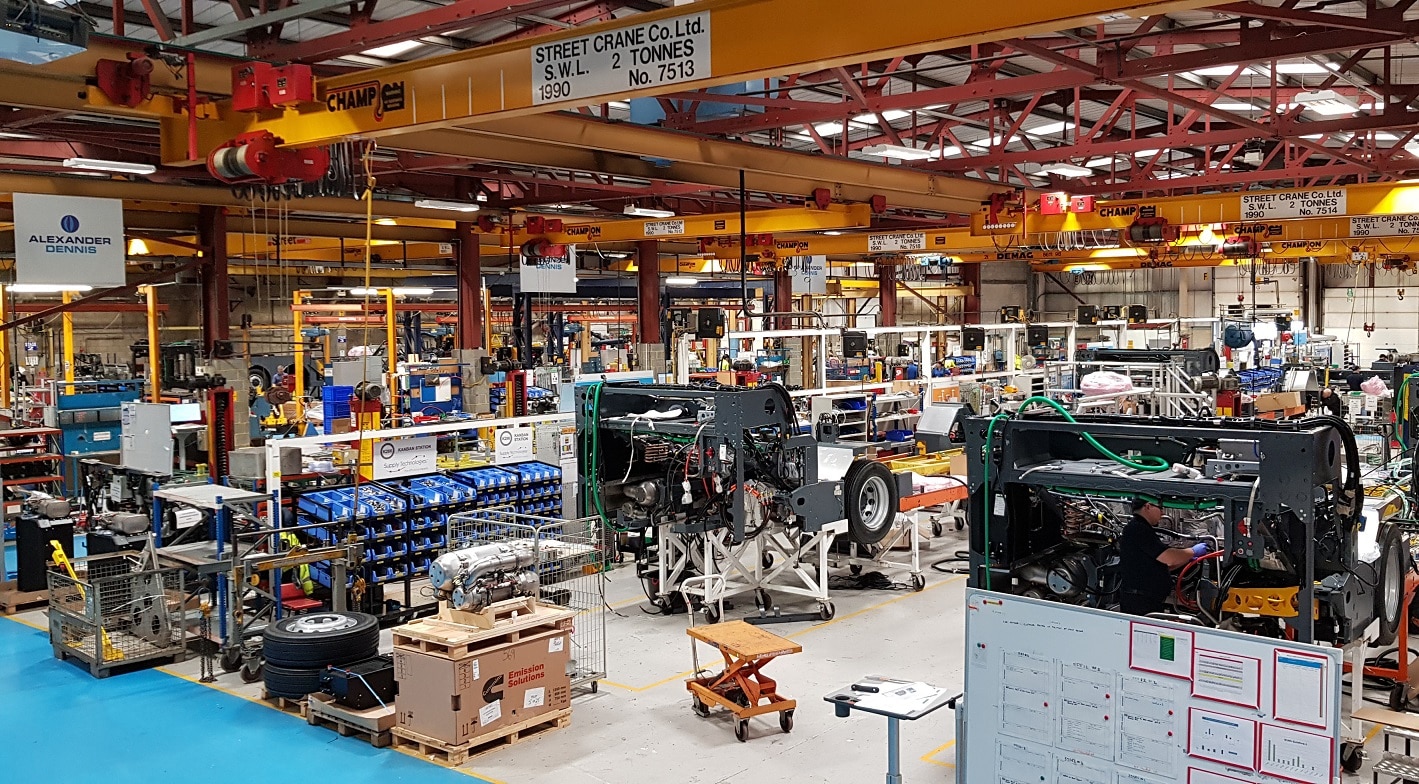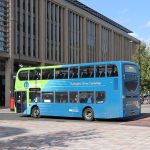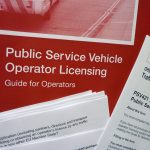Bristol has become the second city in England to suggest that a Clean Air Zone (CAZ) may now no longer be necessary to the delivery of air quality improvements that are legally required.
Bristol City Council (BCC) says that while traffic levels are increasing, changes in lifestyle, work and travel behaviour as a result of coronavirus COVID-19 mean that the level of pollution remains “relatively low.”
Because of that, BCC is now looking at alternative options to improve air quality in line with what has been mandated. “We have the opportunity to explore proposals without needing to charge or ban certain vehicles,” it says. Under Bristol’s original CAZ plans, coaches, buses and minibuses would have been required to meet Euro VI standards. If they did not, a daily charge would be levied
“A new approach is being developed and agreed with the government’s Joint Air Quality Unit for the most constructive way to refocus Bristol’s clean air plans. It is called the ‘test and learn’ approach,” reads a statement on the Clear Air for Bristol website. A proposed ban on privately-owned diesel cars in the central area has been scrapped entirely.
Clean Air Zone in Bristol not off the table completely, says council
Bristol is still required to implement its CAZ by March 2021, unless evidence shows that another option can reduce air pollution faster. BCC will thus continue to work on the CAZ options that it has already developed, alongside exploring new opportunities.
Among the latter are proposals to continue its acceleration of public transport improvements, increased cycling and walking routes and pedestrianizing certain areas. Bus usage in Bristol has already grown by 52.3% between 2009/10 and 2018/19, the largest rise anywhere in the UK over that period.
As part of the ‘test and learn’ approach, transport upgrades will be rigorously reviewed against an evidence base on traffic, travel patterns and air pollution levels. If after testing those measures a CAZ is still required in Bristol, BCC would propose a smaller zone than at present.
In an indication that further work is still required on alternative methods to maintain air quality improvements, BCC has been severely criticised by one bus operator for its actions in introducing a cycle lane in Haymarket at very short notice.
It has constrained traffic flow there and caused major delays for buses using the road. It is understood that adjustments will soon be made in Haymarket in a bid to reduce that congestion.
Mayor Marvin Rees: ‘We are not anchored to one method’
Says Mayor of Bristol Marvin Rees: “Our plans have always been about cleaning up our air in the fastest possible time and not being anchored to one method.
“We will continue to do the work needed for the charging options we have already been developing. It is right that we explore new opportunities in line with the dramatic changes in our lifestyles, travel and income that residents and small businesses experienced following lockdown.
“The end result could actually achieve cleaner air faster while avoiding unintended negative consequences caused by charging vulnerable communities in Bristol.”
Bristol is the second city to suggest that based on changes brought by coronavirus COVID-19, a CAZ may no longer be required to achieve the required standards of air quality. Leeds City Council announced on 19 August that if air pollution trends continue, it will have no need for a CAZ.




















